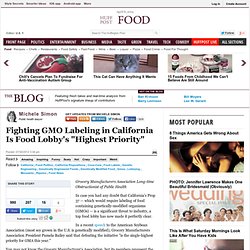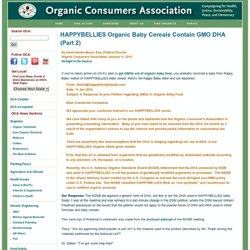

GMO's. Herbicides for GMOs Driving Monarch Butterfly Populations to 'Ominous' Brink. A wall of monarch butterflies, which are under severe threat due to the rampant use of pesticides used to protect gmo crops across the US corn belt.

(Photo by Mexicanwave / Flickr / Creative Commons)The migratory population of the monarch butterfly has reached an "ominous" low, researchers in Mexico announced Wednesday. Scientists are attributing the decline of this essential pollinating population to the ongoing drought and the "explosive" increase in the use of genetically modified crops in the American corn belt. "Because farmers have planted over 120 million acres of crops resistant to the milkweed-killing herbicide glyphosate, the monarchs' essential food supply has been all but destroyed.
" Released by the Mexican government along with the World Wildlife Fund (WWF), a recent survey found a 59% decrease in the area occupied by monarch colonies wintering in the forests of central Mexico, the Los Angeles Times reports. GMO Ticking Time Bomb - Gary Null - Part 1. Michele Simon: Fighting GMO Labeling in California Is Food Lobby's "Highest Priority" Grocery Manufacturers Association Long-time Obstructionist of Public Health In case you had any doubt that California's Prop 37 -- which would require labeling of food containing genetically-modified organisms (GMOs) -- is a significant threat to industry, a top food lobby has now made it perfectly clear.

In a recent speech to the American Soybean Association (most soy grown in the U.S. is genetically modified), Grocery Manufacturers Association President Pamela Bailey said that defeating the initiative "is the single-highest priority for GMA this year. " Monsanto Launches Massive Campaign to Stop GMO Labeling. Garber reports: "Monsanto's GMO corn has been linked to weight gain and organ function disruption, while GMO crops and pesticides destroy our farmland and environment.

" By Lisa Garber, Natural Society 10 July 12. Tell Your Senator What You Think of Their Farm Bill Votes! Today June 28 - Stop Monsanto's Sneak Attack! Tell the FDA: Just Label It! Genetically Engineered Foods ARE Different. FDA should ‘Just Label’ genetically modified products to increase consumer awareness. Champaign-Urbana is famous for its abundance of corn and soybeans, two of the most common ingredients in our food products today.

They’re also two of the most popular genetically modified (GM) foods on the market, which is why when it comes to the Genetically Modified Organism argument, the debate over their use in our food products hits close to home. At this point, we’ve all heard about GMOs. We also know there’s been questioning over the pros and cons of producing them. But where there isn’t much room for debate is whether they deserve to be labeled. A national survey published last Tuesday revealed that nine in 10 Americans support GMO labeling. Outrageous Lies Monsanto and Friends Are Trying to Pass off to Kids as Science. One of the sub-arguments related to increasing yields is the biotech industry's claim that GMO crops are more resistant to pests -- hence more of the crops survive.

In Look Closer at Biotechnology kids are told that agricultural biotechnology is a "precise way to make seeds with special qualities. These seeds will allow farmers to grow plants that are . . . more resistant to pests . . . " In fact widespread commercialization of herbicide-resistant and Bt-spliced GE crops has engendered a growing army of superweeds and superpests, oblivious to all but the most powerful and toxic pesticides. What we should be teaching kids in science class is what scientists have been warning for years -- that any attempt to increase resistance to pests through genetic engineering will ultimately fail.
USDA Receives Over 365,000 Public Comments Opposing Approval of 2,4-D-Resistant, GE Corn. WASHINGTON - April 26 - Over 140 groups and more than 365,000 citizens from across the country are urging the U.S.

Department of Agriculture (USDA) to reject a Dow Chemical application seeking approval of a controversial genetically engineered (GE) corn that is resistant to the hazardous herbicide 2,4-D. In addition to the public comments, 143 farm, environmental, health, fisheries groups and companies will submit a letter to USDA Secretary Tom Vilsack expressing their overwhelming opposition to this crop. The comments and letter will be submitted when USDA’s public comment period ends this Friday, April 27. “American agriculture stands at a crossroads. One path leads to more intensive use of old and toxic pesticides, litigious disputes in farm country over drift-related crop injury, less crop diversity, increasingly intractable weeds, and sharply rising farmer production costs,” said Andrew Kimbrell, Executive Director of the Center for Food Safety. GM food arrives in our neighbourhood : Blog on Something Fresh by Nidhi Nath Srinivas.
In the next 24 months, genetically modified food crops will enter India's neighbourhood.

And that will trigger changes in our own agriculture, like it or not. Between now and 2014, Bangladesh will introduce BT brinjal; Pakistan will introduce biotech corn; Philippines, that already grows biotech corn, will also adopt BT brinjal and biotech rice; Vietnam will adopt biotech corn; and Indonesia will allow biotech corn and biotech sugarcane, according to ISAAA (International Service for the Acquisition of Agri-biotech Applications), a non-profit think tank that monitors adoption of biotech crops globally. These new crops are designed to attract farmers. The seeds fight off pests, diseases, and yield more from the same farm. In short, they reduce the risks and raise the returns - every farmer's dream. The continued fight to label GM food. I have long been concerned about the high prevalence of genetically modified or GM food in our food supply.

For someone who avoids food grown with herbicides and pesticides, the idea of changing the genes in a plant so that it produces pesticides on their own, just doesn't seem like a good way to go. A coalition of farms and NGOs are working to get a measure on the November ballot that would require the labeling of GM foods in California.
In the past, those in the food industry have fiercely opposed similar ballots. It is not surprising, because as soon as GM food are labeled on products in the store, sales may plummet for brands whose products contain GM ingredients. Organic sales might be expected to rise. This measure in California could be the start of a good thing. Food companies and the large farms that grow GM crops are more concerned about keeping their business afloat than the individual impact GM foods could have on our health. DuPont and the Australian Centre for Plant Functional Genomics Expand Collaboration. Safeguard Organic Standards. Over the last twelve years the OCA has organized a series of national campaigns to safeguard organic standards.

While the OCA and our allies have prevented the standards from being significantly watered down, constant vigilance and mobilization have been necessary. The Diane Rehm show recently covered the current debate over organic standards: "The market for organic food has grown from just $1 billion in 1990 to nearly $30 billion today. As big corporations enter the market, concern has grown about enforcement of organic standards, and some see the movement drifting away from its founding principles of sustainability and local farming.
HAPPYBELLIES Organic Baby Cereals Contain GMO DHA (Part 2) If you've taken action on OCA's alert to get GMOs out of organic baby food , you probably received a reply from Happy Baby, maker of HAPPYBELLIES baby cereal.

Here's the Happy Baby letter and our response: From: Andre@happyfamilybrands.com Date: 11 Jan 2012 Subject: A Response to your Petition regarding GMOs in Organic Baby Food Dear Concerned Consumer, We appreciate your continued interest in our HAPPYBELLIES cereal. Carighttoknow.org. The Biotech Industry Is Growing Bioweapons. Dec-27-2011 13:51 John Steele for Salem-News.com.